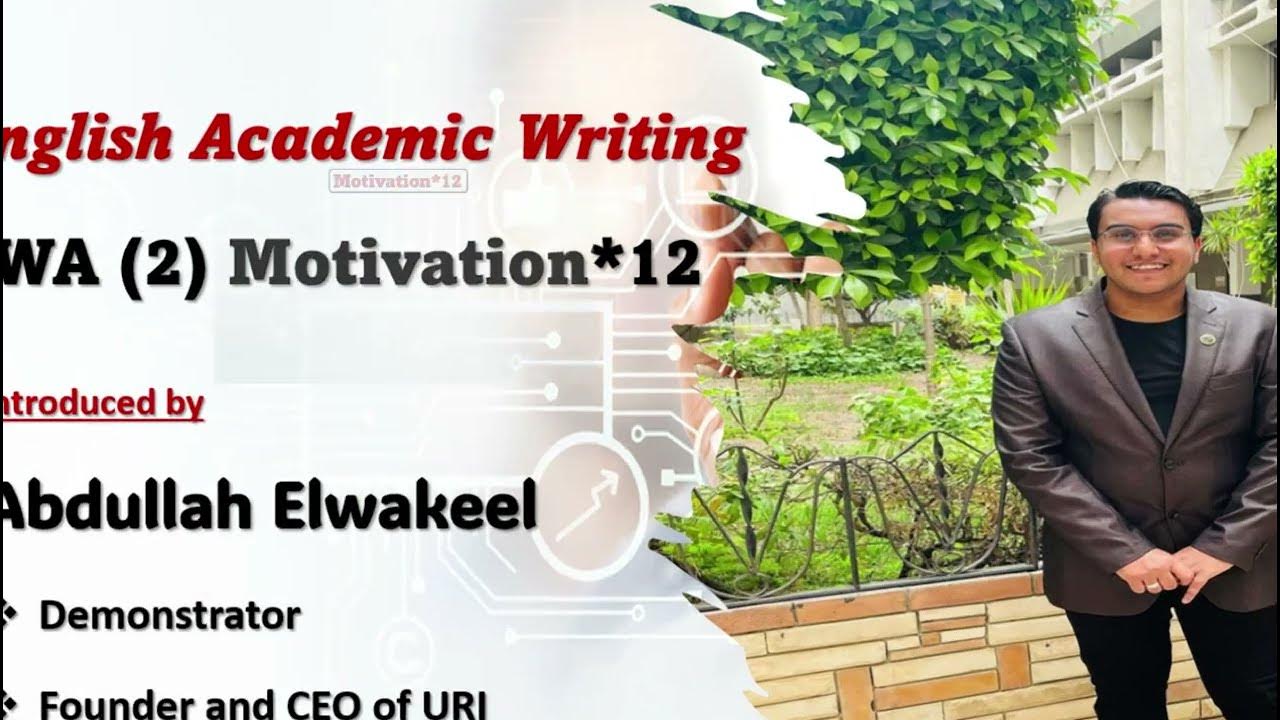English Academic Writing 12 Types of Paragraph
Summary
TLDRIn this lecture, Abdullah Al-Wakeel discusses key principles for effective writing, focusing on the importance of reading as the foundation for writing. He emphasizes that by understanding different types of paragraphs and their structures, students can improve their writing skills. The lecture highlights the need to identify the type of writing (descriptive, informative, critical, etc.) before crafting a paragraph. The speaker also shares his personal experience of becoming a better writer through extensive reading and analysis, concluding that understanding the goal of each paragraph makes writing easier and more natural.
Takeaways
- 😀 Listening well is essential to being able to write and speak effectively.
- 😀 To improve writing, read frequently and critically, analyzing the writing style and structure.
- 😀 The first sentence in a paragraph usually introduces the topic, called the topic sentence.
- 😀 A paragraph typically contains between 2 to 15 sentences, depending on its length and complexity.
- 😀 There are different types of paragraphs, including descriptive, informational, comparative, and critical.
- 😀 When writing, the type of paragraph you choose depends on your objective (e.g., to inform, describe, or compare).
- 😀 A well-written paragraph must have a clear purpose and follow a logical structure.
- 😀 Effective reading allows you to understand how different types of paragraphs are written and what their goals are.
- 😀 Writing becomes easier once you understand the structure and purpose of different paragraph types.
- 😀 To become a good writer, it's crucial to read a variety of well-written materials and practice writing regularly.
- 😀 The key to writing well is understanding the purpose behind each paragraph and adapting your writing style accordingly.
Q & A
What is the core message of the speaker's introduction?
-The speaker emphasizes the importance of being a good reader in order to become a good writer, stating that listening and understanding are foundational skills that contribute to effective writing.
What does the speaker say is crucial for becoming a good writer?
-The speaker highlights that being a good reader is essential to becoming a good writer, as reading widely and understanding different writing styles enhances writing skills.
How does the speaker describe the process of learning to write effectively?
-The speaker shares that writing effectively comes from extensive reading and exposure to different writing styles. As one reads more, they naturally develop the ability to write well, even without formal writing courses.
What is the significance of 'paragraph structure' in the speaker's teaching?
-The speaker stresses the importance of understanding paragraph structure, especially how a paragraph typically starts with a topic sentence and supports it with additional sentences that expand on the idea.
What does the speaker suggest is the first step before writing a paragraph?
-Before writing, the speaker advises understanding the goal of the paragraph, as paragraphs differ based on their purpose, such as description, comparison, or providing information.
How does the speaker define a 'paragraph'?
-The speaker defines a paragraph as a group of sentences, typically ranging from two to fifteen sentences, focused on a single topic or idea.
What types of paragraph writing does the speaker mention?
-The speaker mentions several types of paragraph writing, including descriptive, informational, comparative, critical, and opinion-based writing, each serving a different purpose in communication.
What role does the 'topic sentence' play in a paragraph?
-The topic sentence introduces the main idea of the paragraph, setting the stage for the supporting sentences that follow and help elaborate on the topic.
What should a writer consider when choosing the type of paragraph to write?
-The writer should first determine the purpose of the paragraph, whether it's to describe, inform, compare, criticize, or express an opinion, as the type of paragraph dictates the approach and content.
According to the speaker, how can one become a successful writer?
-A successful writer becomes proficient through consistent reading, understanding different writing styles, and practicing writing regularly. By reading various types of writing, one can grasp the mechanics and style needed for effective writing.
Outlines

This section is available to paid users only. Please upgrade to access this part.
Upgrade NowMindmap

This section is available to paid users only. Please upgrade to access this part.
Upgrade NowKeywords

This section is available to paid users only. Please upgrade to access this part.
Upgrade NowHighlights

This section is available to paid users only. Please upgrade to access this part.
Upgrade NowTranscripts

This section is available to paid users only. Please upgrade to access this part.
Upgrade NowBrowse More Related Video
5.0 / 5 (0 votes)





